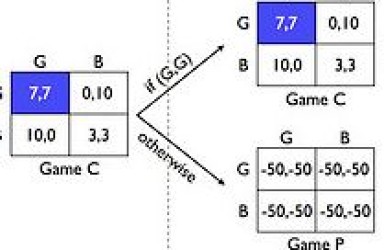Decision Makers, Personal Belief, and Foreign Policy
Beliefs do matter in foreign policy as decision-making rarely conforms to demanding rational choice models. The power of ideas in international relations highlights particular human weaknesses, which might help understand a number of seemingly inexplicable decisions. Beliefs, however, are only one part of a wider framework.
The Iran/Contra Affair and the Nature of U.S. Democracy
The necessities of statecraft require some level of secrecy. Reagan abused this and the results were the Iran-Contra scandal. No President has used the office of the Executive in a more regal, imperial and ordained manner than Ronald Reagan. His use and abuse of the institution to pursue his own ideological doctrine raises the fundamental questionn of whether the concept of democracy is a viable one at all.
Space Warfare: a 21st Century Battleground
The USA is not the only power with key interests in outer space, and will have to pander to other sensitivities in the future. Russia, China, the EU and commercial actors are prevalent in their discussions. We must ask the questions who are we defending from, and to whom are we going to deny the access of space?
Yin or Yang? China and the Muslim world
In its autonomous region of Xinjiang China will decide upon its lasting and largely irreversible geopolitical trademark in entering the Global Balkans. Though it is narrow, the window of opportunity exists for China to take a credible leadership for regional peace and secure stable confidence.
The Limits and Pitfalls of the International Criminal Court in Africa
While we should scrutinise the ICC’s work in Africa, it is important to recognise that international justice is not the only possible response to atrocity. National and local processes are proving to be vital tools of justice, truth and reconciliation across Africa, more profound and lasting than the prosecution of suspects in The Hague.
Absolute and Relative Gains in the Real World
The real world is too complicated to be explained by absolute or relative gains alone. Both theories treat states as rational and unitary actors. Due to the diversity of interests, it is not easy to define a unitary national interest in some issues. Consequently, gains per se sometimes cannot be clearly stated.
The European Court of Justice: An Agent of Member States?
When they created the ECJ, the intentions of member states were to create a court which did not underestimate national sovereignty or national interest. However, the ECJ transformed the EU legal system, eventually blocking member state control over the ECJ.
Strategic Theory: What it is…and just as importantly, what it isn’t
Strategic theory offers an exact and coherent basis for investigating social phenomena. It is able to de-conflict the attempt to assess social activity designed to achieve goals from arbitrary moral valuations. It facilitates clarity of understanding, and is thereby, mind opening and intellectually liberating.
Interview – Arshin Adib-Moghaddam
Arshin Adib-Moghaddam searches for the theoretical underpinnings of the clash of civilizations. Expanding critical theory to include Islamic philosophy and poetry, this metahistory refuses to treat the Orient and the Occident as separate entities.
History Shows Us That Open Diplomacy Is Best
It is too early to evaluate the impact of WikiLeaks on world affairs. But more than ever in this changed and more porous world, Woodrow Wilson’s call for “open covenants, openly arrived at” remains a superior guide to foreign policy to Machiavelli’s recommendation that governments be strong like a lion but also clever like a fox. It may be that WikiLeaks goes too far, but enlightened policy makers should welcome publication of how good decisions—and bad—came about.




